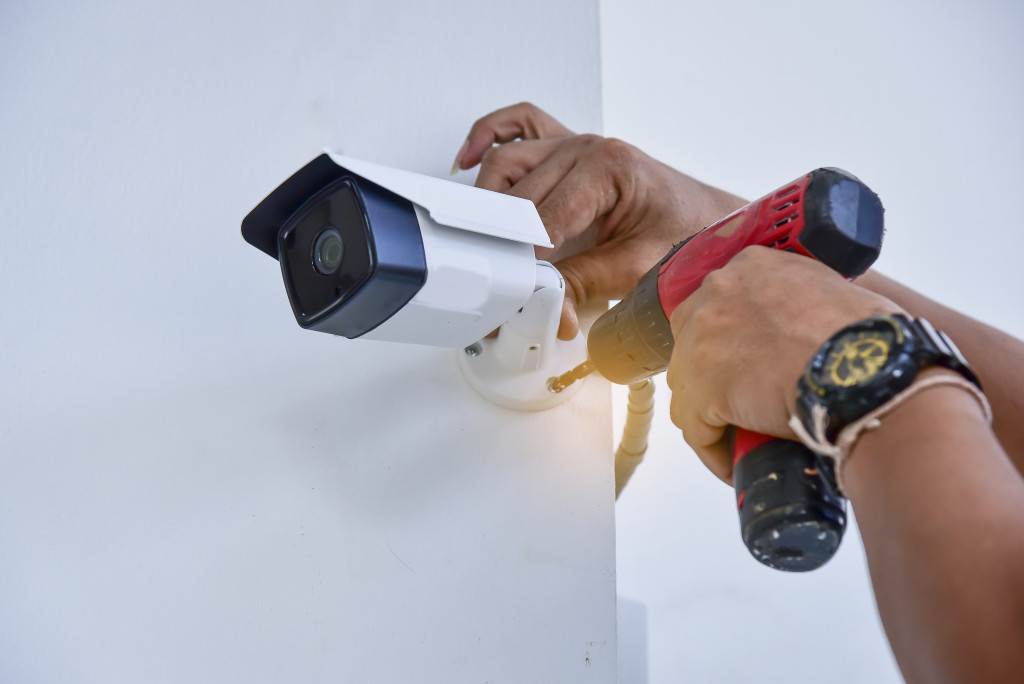Small business owners juggle a lot of things at once. Not only do they have to worry about the day-to-day tasks of running a business, but they also have to keep their customers and employees safe from harm. While there are many things small business owners can do to increase security for their businesses, there are a few key things to keep in mind.
1. Assess security risks
The first step is to assess the security risks that your business faces. This will help you determine what security measures need to be implemented. Several online resources can help you with this, such as the Small Business Administration’s website.
If you’re unsure where to start, you can also contact a security consultant to help you assess your risks. They can help you identify potential vulnerabilities and recommend security solutions. Most importantly, they can help you create a plan to implement these security measures.
It would be best if you also considered conducting a security audit. This is an essential step in determining your business’s security weaknesses. A security audit can be performed by an external company or by an internal team. The information gathered from the audit can help you make changes to improve your business’s security.
2. Implement security measures
Once you’ve identified the security risks that your business faces, you can start to implement security measures. There are a variety of security solutions available, so you’ll need to choose the ones that are right for your business.
A security policy is one of the essential security measures you can implement. This should be a written document that outlines your business’s security procedures. It should be reviewed and updated regularly. Your security policy should cover a range of topics, such as who has access to your premises, how to handle visitors, and what to do in the event of a security breach.
It would help if you also considered investing in security equipment, such as CCTV cameras and alarms. This can deter criminals and help you monitor activity on your premises. Many businesses also use video analytics software to enhance their security alongside surveillance cameras. You can use this software to detect suspicious activity and generate alerts.

3. Train your employees
It’s essential to train your employees on your business’s security procedures. They should know what to do in a security breach, such as who to contact and what to do with confidential information. They should also be aware of the security measures in place, such as CCTV cameras and alarm systems.
You can provide training to your employees in many ways, such as security awareness training sessions, e-learning courses, or information in your employee handbook. You should also ensure that you have a procedure for dealing with security incidents. You should communicate this to your employees, so they know what to do if they witness a security breach.
Additionally, it would be best to consider conducting background checks on all new employees. This will help you screen for any criminal history that could put your business at risk. Your employees are one of your most important assets, so it’s essential to ensure you can trust them.
4. Cooperate with law enforcement
If your business has been a victim of a crime, it’s essential to cooperate with law enforcement. This can help them to catch the criminals and prevent future crimes. You should report any incidents to the police and provide them with any information that could be helpful, such as CCTV footage.
You should also have a procedure in place for dealing with law enforcement. You should communicate this to your employees, so they know what to do if the police arrive at your premises. For example, you may want to designate a specific person to deal with the police. You should train this person on how to handle the situation.
5. Review your security regularly
Finally, you must review your security whenever there are any changes to your business. This could include a change of premises, an increase in staff, or the introduction of new technology. You should also review your security regularly, even if there are no changes to your business. This will help you to identify any new risks and take steps to mitigate them.
If you find any security vulnerabilities, you should take immediate action to fix them. This could involve changing your security policy, investing in new security equipment, or providing more training to your employees.
Following these steps can increase your business’s security and help keep your employees and assets safe. Having a security policy, investing in security equipment, and training your employees are all necessary measures that you should take to protect your business. Regular security reviews are also essential to ensure that your business is as safe as possible. If you follow these steps, you should be able to create a safe and secure environment for your business.
